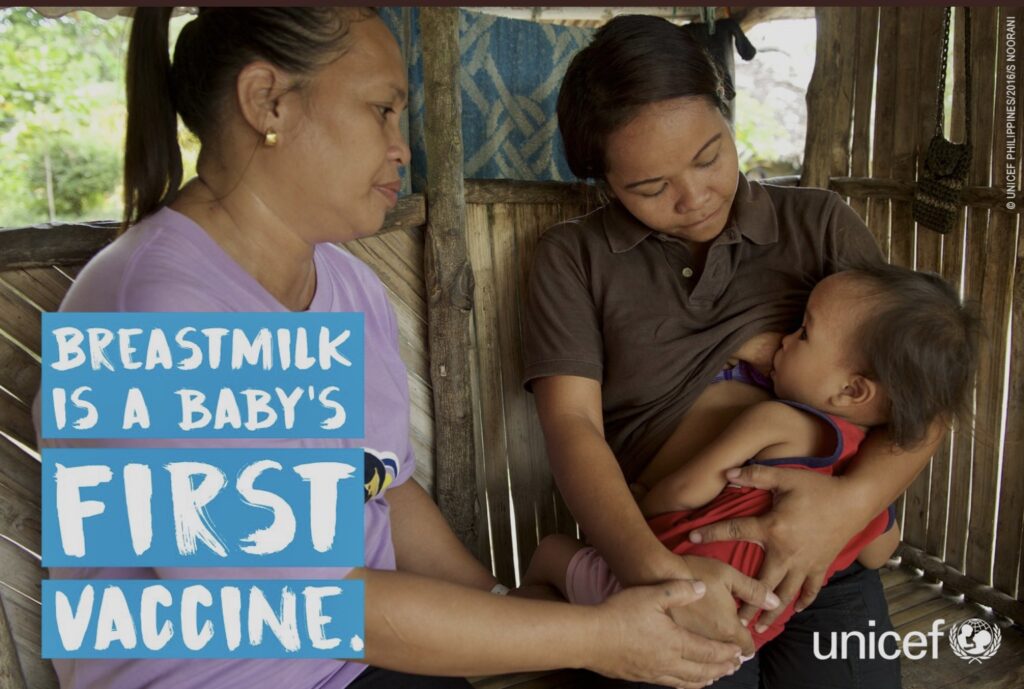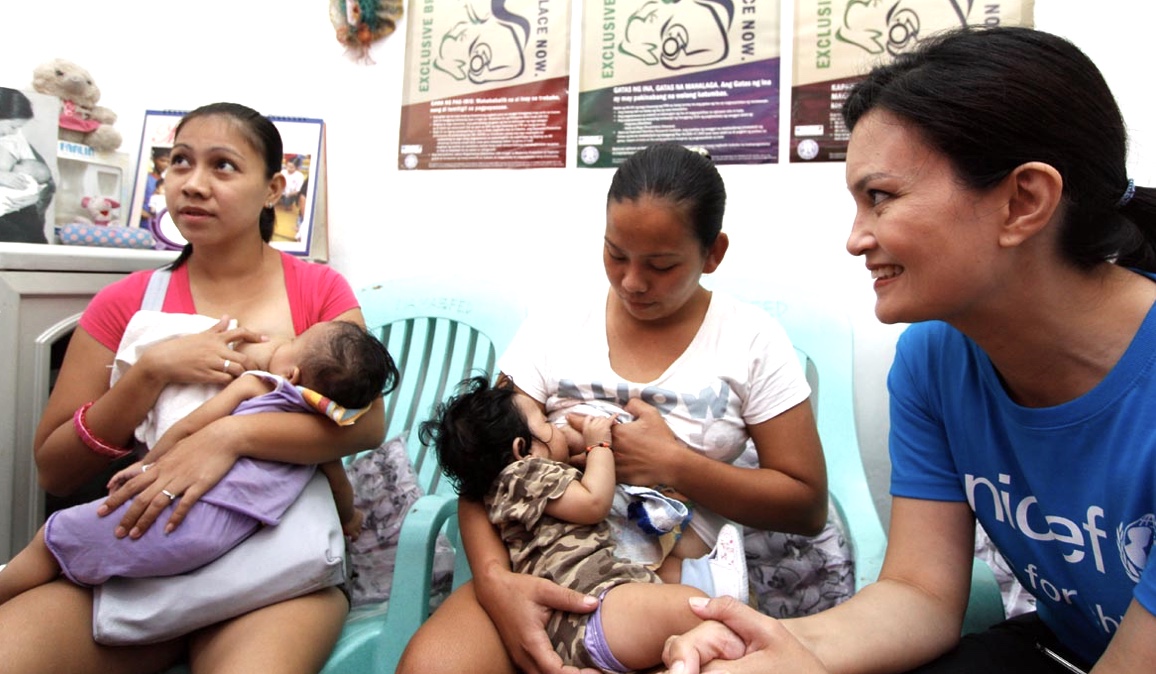Text by Henrylito D. Tacio
Photos courtesy of UNICEF
Mothers and pregnant women watch out. You have been targeted with marketing from formula milk companies, according to a joint report released by two United Nations agencies.
The report, How marketing of formula milk influences our decisions on infant feeding, was based on a survey conducted by the United Nations Children’s Emergency Fund (UNICEF) and World Health Organization (WHO).
The report draws on interviews with parents, pregnant women, and health workers in eight countries. It uncovers systematic and unethical marketing strategies used by the formula milk industry – now worth a staggering US$55 billion – to influence parents’ infant feeding decisions.
The report finds that industry marketing techniques include unregulated and invasive online targeting, sponsored advice networks and helplines; promotions and free gifts; and practices to influence training and recommendations among health workers.
The messages that parents and health workers receive are often misleading, scientifically unsubstantiated, and violate the International Code of Marketing of Breast-milk Substitutes (the Code) – a landmark public health agreement passed by the World Health Assembly in 1981 to protect mothers from aggressive marketing practices by the baby food industry.
“This report shows very clearly that formula milk marketing remains unacceptably pervasive, misleading and aggressive,” said Dr. Tedros Adhanom Ghebreyesus, WHO Director-General. “Regulations on exploitative marketing must be urgently adopted and enforced to protect children’s health.”
The report details how a sustained flow of misleading marketing messages is reinforcing myths about breastfeeding and breastmilk and undermining women’s confidence in their ability to breastfeed successfully.
These myths include the necessity of formula in the first days after birth, the inadequacy of breastmilk for infant nutrition, that specific infant formula ingredients are proven to improve child development or immunity, the perception that formula keeps infants fuller for longer, and that the quality of breastmilk declines with time.
Globally, only 44% of babies less than six months old are exclusively breastfed, the WHO reports. Global breastfeeding rates have increased very little in the past two decades, while sales of formula milk have more than doubled in roughly the same time.

Alarmingly, the report notes that large numbers of health workers in all countries had been approached by the baby feeding industry to influence their recommendations to new mothers through promotional gifts, free samples, funding for research, paid meetings, events and conferences, and even commissions from sales, directly impacting parents’ feeding choices.
The report said that more than one-third of women surveyed said a health worker had recommended a specific brand of formula to them.
Meanwhile, studies have shown that increasing rates of exclusive breastfeeding could save the lives of 820,000 children every year around the world, which would generate the US $302 billion in additional income.
Breastmilk saves children’s lives as it provides antibodies that give babies a healthy boost and protect them against many childhood illnesses. After all, breastmilk, the UN health agency explains, is more than a simple collection of nutrients. It contains all the essential nutrients like protein, fats, vitamins, minerals, enzymes, and sugars in exact proportion. It meets the needs of the growing infant at every stage.
“Early and exclusive breastfeeding for the first six months of a child’s life reduces child mortality and has health benefits that extend into adulthood,” explains the Healthy Newborn Network (HNN).
“Breastfeeding benefits not only the child but the mother and family also, as it is free of cost and reduces the risk of infection in newborns, enhances neurodevelopment, and reduces the risk of acquiring certain non-communicable illnesses in adulthood,” HNN adds.
The HNN says that breastmilk substitutes and animal milk (from cattle, carabao, and goats) not only lack essential immune-building components they also expose the infant to an increased risk of infection and morbidity.
Dr. Hiroshi Nakajima, former WHO director-general, described breast milk in these words: “The sole truly universal food for the entire human species.”
Dr. Nakajima said breast milk until recently, has served as “a vital link for nutrition and survival across the entire span of human existence, nurturing the newborn, the infant, and the young child during the most vulnerable years, all the while providing a powerful source of protection from infectious disease.”
Breast milk, the United Nations health agency explains, is more than a simple collection of nutrients. For thousands of years, in all continents, babies have been breastfed for a simple reason: mother’s milk is natural.
“Mother’s milk is a living substance of great biological complexity that not only provides unique protection against disease, but also stimulates the baby’s own immune system,” the WHO points out.
The WHO recommends exclusive breastfeeding for the first six months of life, after which “infants should receive nutritionally adequate and safe complementary foods while breastfeeding continues for up to two years of age or beyond.”

